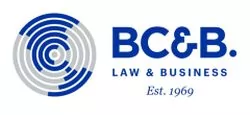It is very common that foreign and national applicants tend to minimize the role played by the title of a patent application. For this reason, when the text of a patent application is being written, in most cases said title is drafted in a very superficial manner. However, it is important to bear in mind that there are legal requirements within the Mexican Industrial Property Law (MIPL) that must be complied with as well as some commercial reasons that make advisable to pay particular attention to the words used to denominate the invention.
In order to be aware of the above legal requirements, the provisions of articles of the MIPL and its Regulations directly related with this theme and those corresponding to PCT rules must be deeply analyzed.
In the first place, Article 38 of the MIPL states that when a patent application is to be filed before the Mexican Institute of Industrial Property (MIIP), it must include, in addition to other complementary information, the "denomination of the invention". In this particular respect, Article 25 of the Regulations on the MIPL establishes that the "denomination or title of the invention must be brief and to denote by itself the nature of the invention.
As it can be observed, these articles provide simple rules for correctly drafting the title of an invention, which can be summarized in two fundamental aspects: brevity and clarity.
Independently of the stated in said Regulations, it is important to consider, when the title of the invention is being drafted, that it will be used many times in order to search target words in data bases of patent applications and patents. This is why said title should briefly establish the nature of the invention.
On the other hand, it is also clear that those applications of national phase filed via PCT must comply with Rule 4.3 of this Treaty which states that the title of the invention shall be short (preferably from two to seven words when in English or translated into English) and precise.
A significant number of Mexican patent applications contain titles like "novel compounds" "novel process", "mechanical device", etc.
If these titles are analyzed, it can be concluded that they do not comply with the provisions as established by the MIPL and its Regulations or with the PCT rules.
Effectively, said titles are brief (do not exceed seven words) but there is no doubt that they are not clear enough to be considered as appropriate, because from their reading, nobody could be able to deduct the real matter contained in the application.
But, what are the consequences when the title of a patent application does not comply with the requirements of the Mexican legislation?
The Examiner may issue an official letter, asking applicant to modify the title of the invention in order to make it connotative with respect to the matter being disclosed and claimed in the application. This situation of course, further to delay the prosecution of the case, involves unnecessary costs for the applicant.
Hence, it is clear that no extraordinary efforts are needed to avoid said two problems, but simply to pay special attention to the provisions of the law, regulations and rules stated above when the patent document is being prepared to be filed in Mexico.
Although it is true that the issuance of official letters containing this particular requirement is not a common practice in Mexico, and that a considerable number of Mexican patent applications are granted in spite of lacking of a precise title, it seems to be a good moment to consider and evaluate some commercial reasons which make necessary to name the invention in a clear and precise manner.
The experts in Industrial Property coincide in that the title of any document is expected to play two very important roles. The first one is to offer the reader a very compact summary of the matter contained in a document, and the second one is to attract his interest in order to lead him to read the whole document.
Titles like "novel compounds" "useful process", "novel process", "mechanical device", etc., cannot be considered at any moment as complying with the expectations above-mentioned, because they do not provide a clear idea of what is being disclosed in the patent application, neither invite someone to read the whole text.
Thinking for example in a Mexican company within the dyeing field that posess a very low or no budget for investigation, it would surely be interested in knowing new and improved technologies to increase its production and reduce costs. Thus, if this firm decided to look for Mexican patents related with similar processes, there is no doubt that an appropriate title would catch his attention and interest for learning more about this type of technologies and perhaps could consolidate a potential negotiation in the future.
However, if said potential client reads a title merely reciting "novel process", the patent, in spite of disclosing a viable process to be easily adapted to any manufacturer in the dyeing field, will probably be ignored, since the title would not be saying anything about the nature of the invention.
The title of a patent application should be carefully drafted in order to avoid delays and costs during prosecution. If said title is well defined and well written, both the provisions of the law and the strategic roles played by the title would be intrinsically satisfied.
The content of this article is intended to provide a general guide to the subject matter. Specialist advice should be sought about your specific circumstances.


